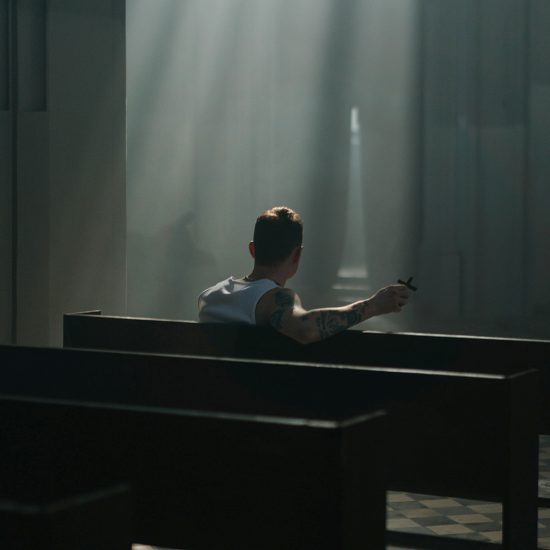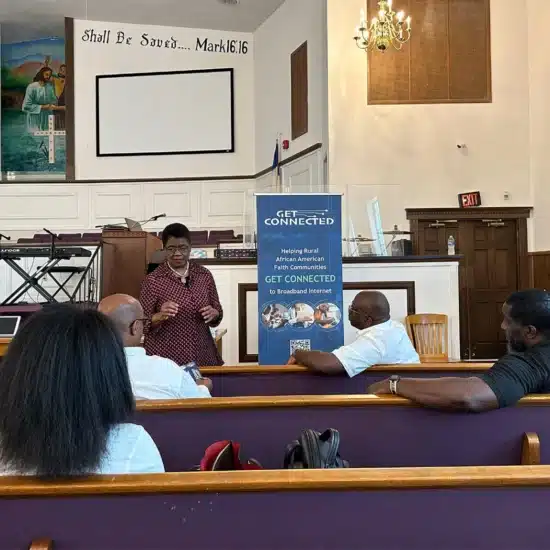
The story of how Netflix replaced Blockbuster is a well-documented and prominently cited tale of warning. The documentary The Last Blockbuster can of course be streamed on Netflix. The fall of a video rental empire is the foundation narrative to the popular TV show Schitt’s Creek… also available on Netflix and other streaming services.

Greg Mamula
Netflix was founded as a mail-in DVD subscription service with no late fees. With a sense of the upcoming technological improvements, they began building a streaming platform they fully committed to by 2007. The innovations continued as Netflix built a production arm to create their own content. In 2019, Netflix received 14-Oscar nominations. Not bad for a young rental company. Netflix has a current net worth of approximately $300 billion, putting it on par with companies like Disney and Adobe, while outpacing household names like Nike, Exxon Mobile, Toyota, and Coca-Cola.
Alternatively, Blockbuster carried heavy investments in more traditional brick-and-mortar storefronts. To the chagrin of their customers, a significant source of their income was rooted in the application of late fees. In 2000, Netflix approached Blockbuster’s CEO to propose a $50 million merger, where Netflix would put Blockbuster online and Blockbuster would traffic Netflix DVD supply in store. Netflix founder Reed Hastings was famously laughed out of the room.
You know the rest of the story. Blockbuster attempted to create a mail-in service and even recklessly purchased another failing business, Circuit City, to catch up to Netflix. It was already too late. Blockbuster filed for bankruptcy in 2010 and there is but one Blockbuster store left in the world.
Cautionary tales like Blockbuster, Sears, Kmart, and Toys “R” Us are often used as warnings against falling in love with the status quo model of business… and ministry. Netflix is often utilized by speakers at conferences and retreats to motivate church leaders into embracing new ministry models that are better equipped to meet the needs of the missional landscape we find ourselves in. The metaphor is as simple as it is dramatic: Don’t be Blockbuster! Be Netflix!
I get to walk with pastors and leaders from a variety of contexts, providing them with counsel and resources to help them discern best ministry practices in their local situations. I also serve as a faculty mentor to seminary students getting graduate degrees. And I regularly share coffee with retired clergy and denominational leaders. This means that every week I engage with the former, the established, and the upcoming leaders of the church. It is a wonderful vocation.
However, when I reflect on the Netflix illustration, I sometimes get discouraged. It feels like it might be too late for many of our church leaders and churches. I know many leaders laughing Netflix-like mission and ministry opportunities out the door. They love the church, they just do not understand the shifting landscape, have difficulty envisioning something different, or in Blockbuster fashion just simply refuse to change. Do you think Blockbuster people didn’t like movies? Of course they did. They just could not envision a new delivery system.
But I also know pastors and church leaders who are creative and passionate ministry entrepreneurs. They look for where God is on the move in their community and find new ways of getting on board. Their successes are often small in scope and go uncelebrated, but they are meaningful and carry deep impacts for those they minister. They understand and love their community with great pastoral sensitivity. But they will never be Netflix. They will never have a ministry model to mimic, have a must-listen podcast, be a sought-after keynote speaker, or become a publishing darling.
And this is the dramatic pause speakers use when using the Netflix metaphor. Is it already too late for your church? Ministry? Vocation? Be Netflix or die are their only options.
This is just too crude an illustration. Not every ministry opportunity is a simple Blockbuster or Netflix duality. Which is why I have had a love/hate relationship with the metaphor. Of course, I want to be effective and even “successful” in ministry. When I encounter a new ministry opportunity I put it to my personal Netflix filter, so I do not Blockbuster laugh it away. Does this meet the needs of people in our context? Is it adaptable in the future? What are the costs in hearts, minds, and souls of those who are left behind if they are not early adopters? Am I passionate about this? Will the gospel be shared? Is this about institutional survival or the flourishing of the kingdom?

Glenn Carstens-Peters / Unsplash
These and other questions haunt me about the current and future state of the church. Which is why I have never used the Netflix illustration in my speaking or writing until now.
Enter Redbox!
You know what a Redbox is even if you have never used one. There are 40,000 bright red telephone booth-sized boxes outside of your favorite grocery store, pharmacy, and donut shop that boasts of a loyalty member base of 39 million people who rent DVDs and Blu-rays from a self-guided kiosk. The obvious problem of course is that physical media rentals have declined by 90% in the past decade and Redbox revenue was down 34% on the eve of their October 25, 2021, IPO launch. It is one of a handful of companies in history to go public with declining revenue.
But this is not the end of the story. Redbox recently announced mergers with production company Lionsgate and streaming company Roku to expand its business model beyond storefront kiosks. Red Box is also a little like Netflix now with their own streaming service available on multiple platforms. And they have launched a production company, giving them the ability to grow and expand into low-cost original content creation.
In order to land these mergers and expand their streaming platforms, Redbox did extensive research to discover what makes their millions of members unique. Their research revealed that Redbox users are late adopters to new technology, watch 72% more movies than the average American household, still utilize traditional cable services, and consider themselves deal hunters. Redbox knows the physical media side of their business will decline to the point of unsustainability. But until then the company plans to utilize their very visible red boxes to promote their online platform and walk their members slowly into the streaming age.
Redbox, I feel, is a much better metaphor for how we can approach the present church age. Redbox is projected to be successful despite still having physical media as part of their business plan because they have not ignored their current customers in favor of an archaic business model like Blockbuster, but neither have they lost late adopters like Netflix. They have found a way to walk their customer base from one type of entertainment platform to another.
This is how the many ministries, missions, and services focused on the kingdom of God through the church can stand in the shifting missional landscape. It is our calling to walk with people right where they are. We cannot keep using models that do not work… don’t be Blockbuster. But not everyone fits one type of ministry model going forward… we do not have to be Netflix.
There is a middle Redbox-like way we can utilize the best of all available practices to prosper as kingdom people in our contexts. Our calling is to keep looking for where God is active and on the move in our communities. Our churches and ministry buildings are like Redbox stands all over our community. They are beacons and billboards. They represent the kingdom of God in the cities and towns they are planted. They are filled with people who have one foot in what used to be and another foot in what will be. We can be the people who walk them through that process.
We must also think about adopting hybrid church models that host in-person gatherings while developing exciting and accessible online ministry practices. Every one of our relationships extends into new media platforms. It is a real space where we work, play, and worship and that requires us to bear witness to the presence of Christ in those spaces.
If we do nothing, some of our churches and ministries will go the way of Blockbuster. But Netflix is not the only option. It may not even be the best option. Consider Redbox. Use what works until it is unsustainable, then be ready and equipped to walk with Christ into what is next.
Rev. Dr. Greg Mamula is the Associate Executive Minister for the American Baptist Churches of Nebraska, and a contributing writer for Word&Way. He is the author of Table Life: An Invitation to Everyday Discipleship, published by Judson Press in print and e-reader versions from online distributors including Amazon. To learn more information visit www.table-life.org.






